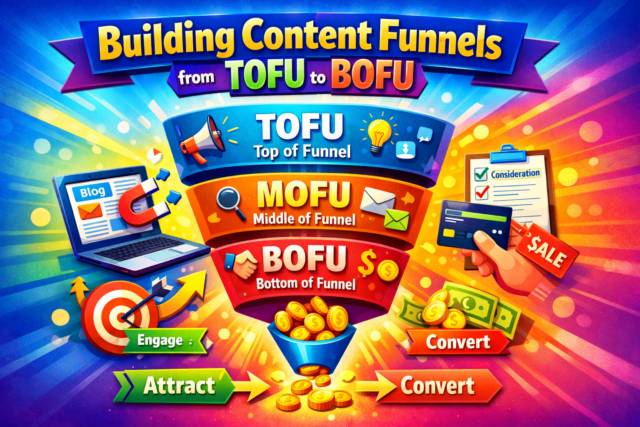In a significant development within the Search Engine Optimization (SEO) community, a comprehensive leak of Google’s API documentation (Internal Documentation) has revealed unprecedented insights into the search giant’s ranking mechanisms.
The leak, encompassing over 2,500 pages of sensitive information, has illuminated Google’s ranking factors and operational processes, offering SEO specialists and managers an unprecedented view into the inner workings of the dominant search engine.
These documents disclosed several crucial details, many of which contradict public statements previously made by Google to the SEO industry:
- Early Recognition of Clickstream Data Importance: Google acknowledged the necessity of comprehensive clickstream data early on, prompting the development of the Chrome browser to enhance search result quality.
- NavBoost System: A system known as “NavBoost” aggregates extensive user interaction data, including click patterns and popular search terms, to refine search results.
- Impact of Click and Engagement Data: Click and engagement metrics are pivotal in evaluating site quality, significantly influencing rankings.
- Use of Whitelists During Critical Events: Google employs whitelists during critical events like the COVID-19 pandemic and democratic elections to control which websites prominently appear in search results.
This article aims to dissect the implications of this leak for non-technical marketers by addressing three key questions:
- What is the Google API documentation leak?
- Why does it matter for marketers?
- 10 things every marketer should know and do
What is the Google API Documentation Leak?
The story broke when Rand Fishkin, former CEO of Moz and co-founder of SparkToro, received initial documents from an anonymous source, later identified as Erfan Azimi. These documents were inadvertently published on GitHub between March and May 2024. The leaked content consisted of more than 2,500 pages of Google’s API documentation and technical manuals detailing the interactions of software components.

Why Does it Matter for Marketers?
Understanding the context of SEO is essential. SEO, or Search Engine Optimization, involves strategies to increase website traffic from non-paid search engine listings. Given Google’s dominant position with 91% of the global search engine market share, SEO professionals devote significant efforts to improve their websites’ ranking positions on Google’s search results pages. Access to Google’s decision-making components would significantly enhance its strategic efforts.
Google guards its ranking factors closely for several reasons. Beyond protecting sensitive information from competitors, Google aims to deter unethical marketers from manipulating search results. Upholding high-quality SEO practices ensures user engagement, enhancing the effectiveness of paid listings displayed against future search queries.
This leak’s glimpse into Google’s internal workings carries profound implications for marketers. Below, we highlight ten crucial findings:
10 Things Every Marketer Should Know and Do
1. The Power of Domain Authority (SiteAuthority):
Google utilizes “siteAuthority” as an internal metric for gauging a website’s trustworthiness and credibility. This score significantly impacts search rankings, with high-site authority websites enjoying increased visibility.
Actions:
- Build a Credible Website: Focus on high-quality, informative content that establishes your expertise and provides value to your audience.
- Backlink Strategy: Attract backlinks (links from other websites pointing to yours) from reputable sources within your industry. These backlinks act as a vote of confidence, boosting your site’s authority.
- Technical Excellence: Ensure your website is technically sound, user-friendly, and regularly updated. This includes optimizing page speed, mobile responsiveness, and a clean design.
- Content for Expertise, Authoritativeness, and Trustworthiness (E-A-T): Craft content demonstrating your expertise in your field. Google’s E-A-T quality rating emphasizes the importance of content created by credible sources, further solidifying your site’s authority.
2. User Clicks Influence Rankings:
User interactions, particularly click-through rates (CTR), directly impact search result rankings. Pages with high CTRs signal to Google that they’re relevant and valuable to users, potentially boosting their ranking.
Actions:
- Compelling Titles and Descriptions: Optimize your page titles and meta descriptions to be clear, relevant, and enticing. This encourages users to click on your results in the Search Engine Results Page (SERP).
- User-Centric Content: Develop content that directly addresses user search queries and delivers immediate value. Focus on solving their problems or answering their questions clearly and concisely.
- Monitor and Improve CTR: Track your CTRs and bounce rates (users leaving your site after viewing one page). Use this data to identify areas for improvement, ensuring your content is relevant, informative, and easy to navigate.
3. The Sandbox Effect for New Websites: Google’s API Documentation
New or suspicious websites may experience a period of reduced visibility in search results, known as the “sandbox.” This acts as a probationary period where Google assesses the website’s credibility before granting it higher rankings.
Actions:
- Patience is Key: Don’t get discouraged if your new website doesn’t appear immediately at the top of search results. Focus on creating high-quality content and building your site’s authority.
- Content is King: Prioritize creating authoritative, well-researched content that establishes your expertise. This will attract users and search engines alike.
- Organic Backlinks: Focus on acquiring organic and reputable backlinks from relevant websites. Avoid manipulative tactics that can harm your SEO efforts in the long run.
- Ethical SEO Practices: Build trust and credibility by adhering to ethical SEO practices. Google rewards websites that prioritize user experience and high-quality content.
4. The Power of User-Generated Content:
When evaluating content quality, Google considers user engagement metrics like reviews and comments. High-quality user-generated content enhances user experience and can positively influence search rankings.
Actions:
- Encourage User Engagement: Encourage valuable user-generated content like reviews and comments, but ensure they remain relevant and high-quality.
- Content as a Cornerstone: Invest in creating well-researched and informative content that addresses user needs and expectations.
- Content Updates: Regularly update and enhance your content to ensure it remains relevant and continues to provide users with value.
5. Personalization in Search Results: API Documentation Leak
Google tailors search results to individual user preferences and behaviors. This ensures users receive the most relevant content based on past searches and online activity. Personalization can impact search rankings differently for each user.
Actions:
- Know Your Audience: Understand your target audience’s preferences and behaviors by analyzing data from your website analytics tools and SEO reports.
- Segmentation Strategies: Utilize audience segmentation to deliver targeted content that resonates with specific user groups. This increases user satisfaction and engagement.
- Align with User Behavior: Adapt your content strategy based on how users interact with your website. This ensures a seamless user experience.
6. The Rise of Machine Learning in SEO:
Google constantly uses machine learning models to refine content rankings. These models continuously analyze vast datasets and user behaviors to improve search results’ accuracy and relevance.
Actions:
- Structured Data and Semantic HTML: Implement structured data and semantic HTML to make it easier for Google’s machine learning models to understand the context of your content.
- High-Quality, Relevant Content: Focus on creating high-quality, informative content that aligns with user intent (the reason users conduct a specific search).
- Stay Updated on SEO: Keep informed about the latest SEO best practices and algorithm updates. This allows you to adapt your strategies to stay ahead of the curve.
7. The Importance of Video Content:
The leak underscores Google’s growing preference for video content. A metric called “isVideoFocusedSite” identifies websites predominantly featuring videos. These sites may receive enhanced visibility in search results, reflecting the increasing prominence of video content across various industries.
Actions:
- Video Integration: Enhance your website content with relevant video assets that complement your written content and provide value to users.
- Local Businesses Take Note: For local businesses, creating informative videos about your services, products, or customer testimonials can be a powerful tool.
- Optimize Local Video Content: Optimize your video content for better local relevance by including location tags and targeting local keywords.
- Video Hosting Platforms: Host your videos on platforms suitable for search engine visibility, such as YouTube or Vimeo.
8. Diverse User Engagement Metrics
Beyond CTRs, metrics like dwell time (the amount of time users spend on a page) and long clicks (clicks that lead users to spend a significant amount of time on another website) play a crucial role in determining rankings. These metrics signal content relevance and user engagement, influencing search result rankings positively.
Actions:
- Engaging Content Creation: Craft content that engages and retains users on your website. Consider incorporating multimedia elements like infographics, images, and videos to break up text and enhance user experience.
- Improved Navigation and Speed: Optimize your website’s speed and navigation to minimize bounce rates (users leaving your site after viewing one page). This encourages users to explore your content further.
- Content Refreshment: Regularly update your content with fresh information and insights to maintain relevance and user engagement.
9. Outdated Ranking Factors:
The leaked documents suggest that some once-prominent ranking factors, such as “Link Juice” (the value passed on through backlinks) and PageRank sculpting (manipulating the flow of link juice within a website), are no longer as influential. Google’s algorithms are constantly evolving to prioritize user experience and high-quality content.
Actions:
- Stay Informed: Remain updated on current SEO best practices and algorithm updates. Reliable sources like industry publications and SEO communities can provide valuable insights.
- Regular SEO Audits: Regularly audits your SEO strategies to ensure they align with Google’s current guidelines. This helps you avoid practices that may negatively impact your rankings.
- Adaptability is Key: Be prepared to adapt and adjust your SEO strategies as Google’s algorithms evolve. Focus on sustainable, long-term tactics prioritizing user experience and high-quality content creation.
10. Transparency Concerns with Google’s API Documentation Leak
Discrepancies between Google’s public statements and internal practices revealed by the leak highlight transparency issues. These inconsistencies can lead to confusion and misaligned SEO strategies, impacting digital marketing efforts.
Actions:
- Independent Research: Conduct independent research to verify SEO tactics and best practices. Don’t rely solely on Google’s official statements.
- Seek Diverse Insights: Look for insights from multiple reputable sources beyond Google’s guidance. Industry publications, SEO communities, and conferences can offer valuable perspectives.
- Engage with the SEO Community: Actively participate in the SEO community by sharing knowledge and learning from others. This allows you to gain diverse perspectives and stay ahead of the curve.
End of Google’s API Documentation Leak
The leak of Google’s API documentation provides a rare glimpse into the intricate workings of Google’s search algorithms, settling longstanding debates among SEO professionals. Non-technical marketers can leverage these insights to refine strategies that are aligned with Google’s practices. Embracing these findings and actions promises more effective SEO practices, improved website performance, and greater success in the dynamic realm of search engine optimization.
While a surprising event, the Google API leak offers valuable insights for digital marketers. By understanding how Google prioritizes content, you can make data-driven decisions to improve your website’s search ranking and user experience. To optimize your digital presence for the ever-evolving search landscape, visit Digital Maxima for expert digital marketing services. Our team can help you craft a comprehensive SEO strategy incorporating the latest trends and best practices to achieve long-term success.





